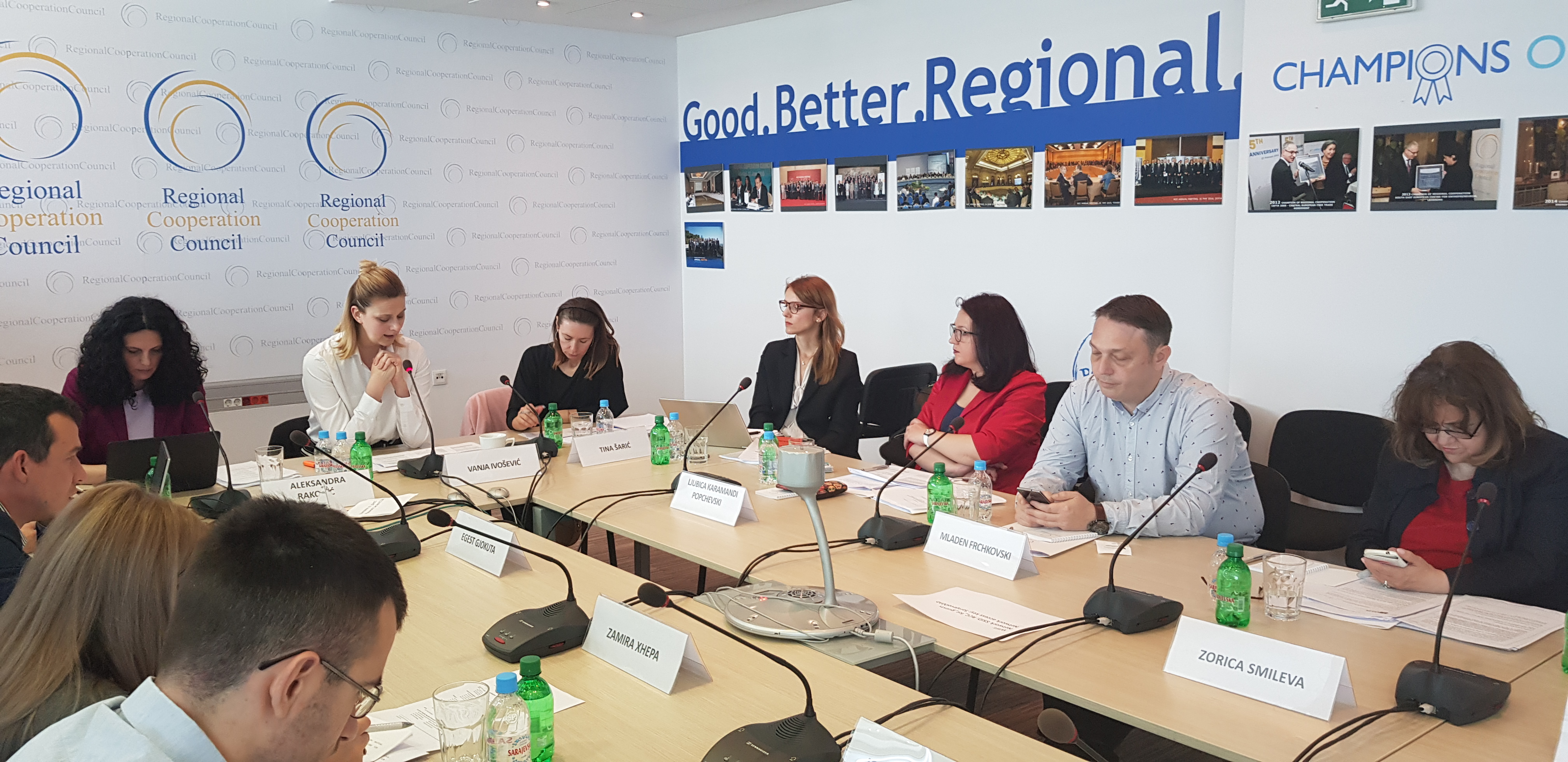Western Balkans confirms Recommendation to open negotiations on Mutual Recognition of Professional Qualifications
07 May 2018

Joint Working Group on Mutual Recognition of Professional Qualifications (JWG on MRPQ) at themeeting held in the Regional Cooperation Council (RCC) headquarters in Sarajevo on 7 May 2018 (Photo: RCC/Alma Arslanagic Pozder)
Sarajevo – Representatives of six Western Balkan economies gathered in the Joint Working Group on Mutual Recognition of Professional Qualifications (JWG on MRPQ) at their meeting held in the Regional Cooperation Council (RCC) headquarters in Sarajevo today confirmed recommendation to open negotiations on mutual recognition agreement of professional qualifications.
The JWG on MRPQ Recommendation is directed towards the Governments of the six Western Balkan economies to open the negotiations on Mutual Recognition Agreement of professional qualifications for Doctors of Medicine, Dentists, Architects and Civil Engineers in construction.
“The ultimate goal of the recommended negotiations is to conclude Mutual Recognition Agreement between six economies thus establishing common rules for easy recognition of professional qualifications for the applicants holding a professional qualification obtained in the one of the economies, enabling them access to and pursuit of the profession in another economy”, explained Vanja Ivosevic, Senior Expert for Skills and Mobility, representing Regional Cooperation Council (RCC) in the Working Group.
“The Recommendation stipulates that the respective Governments appoint negotiation teams, as well as the Lead Negotiator and the Deputy Lead Negotiator and the aim is for this process to complete by the end of 2019, with the Agreement reached. This is one of the requirements of the Mobility Agenda of the Multi-Annual Action Plan on Regional Economic Area (MAP REA) for the Western Balkans, endorsed by the region’s Prime Ministers at the Trieste Summit last July. Among other things, MAP REA foresees removing obstacles to mobility of professionals through regional mutual recognition agreements of professional qualifications in sectors of mutual interest.”
Professional qualifications are defined as formal qualifications attested by evidence, an attestation of competence issued by a competent authority and pursuant to legislative, regulatory or administrative provisions, in line with the definition of professional qualifications provided in the European Union's (EU) Directive on Professional Qualifications.
The JWG on MRPQ further recommends establishing a Database on mobility of professionals compatible with the EU Database on mobility of professionals in line with the EU Directive on Recognition of Professional Qualifications and within the present Recommendation offers recommendations to the respective governments on establishing the Database.
Joint Working Group on Mutual Recognition of Professional Qualifications was set up in July 2015 under the auspices of the RCC, in accordance with the goals and priorities stipulated by the South East Europe 2020 Strategy (SEE 2020), led together with SEE 2020 Dimension Coordinators – Central European Free Trade Agreement Structures (CEFTA) and Education Reform Initiative of South Eastern Europe (ERISEE). Its mandate has also been confirmed by Mobility Agenda of the Multi-Annual Action Plan on Regional Economic Area (MAP REA) for the Western Balkans, endorsed by the region’s Prime Ministers at the Trieste Summit last July.



